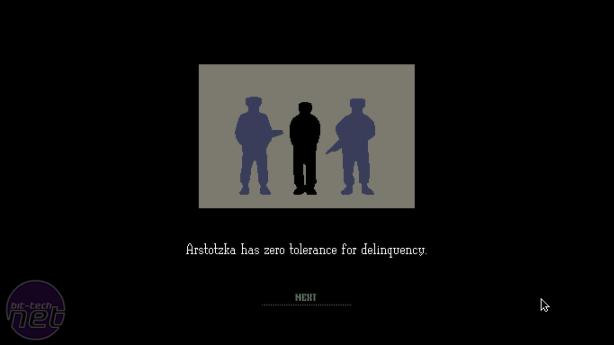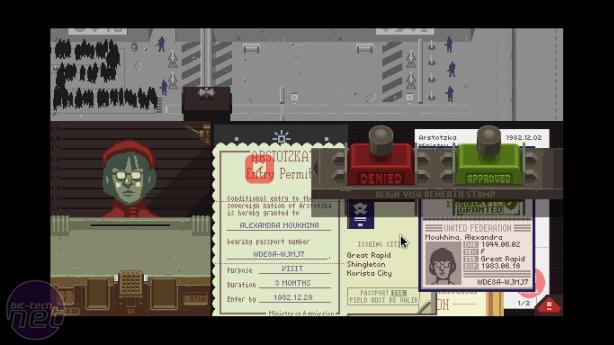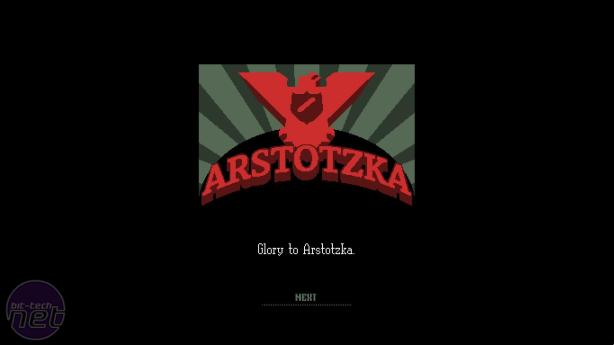
Papers, Please Review
Taking cash for illegally allowing members of a secret organisation to pass through your checkpoint might seem like a great idea, but if you get caught you could find yourself thrown in prison and out of pocket for the rest of your short life. When a woman pleads with you to prevent a man further down the line from entering the country due to her fear that he plans to take her passport and sell her into the slave trade, what do you do? Do your job by the letter and allow the man (with perfectly legal paperwork) through, or stop him and illegally turn him away for her benefit?Given that you’re paid for each correctly processed individual, purposefully making a ‘mistake’ can have grave consequences and result in your failing to make enough money to survive. Further pressure is assigned to each decision thanks to the fact that each day passes incredibly quickly, forcing you to process paperwork quickly and limiting the time you can spend on each difficult decision.

Underlining all of these decisions, and indeed your main purpose for making money, is the large family relying on your paycheck to keep them healthy, fed and housed. With the backdrop of your suffering family to look after, the line between right and wrong quickly becomes blurred. Questionable practices in the short term can be legitimately explained as morally correct over the long term.
What constitutes morally right and wrong is not a new idea for videogames, but the way Papers, Please frames it is a welcome break from the usual crass and simplistic good guy/bad guy compass. You’re your own judge regarding what is right and wrong, meaning that your actions here could arguably provide a much more accurate reflection of what kind of person you really are. Papers, Please isn’t here to judge you, but it does ask questions that tease you to judge yourself.

The intensity of the narrative is a great example of how to weave plot and characterisation into gameplay. Every twist and turn happens within the confines of your immigration booth, with little to no reliance on the usual staples of cut-scenes, audio logs and voiceovers. In other words, Papers, Please all but abandons the use of storytelling mechanics defined and mastered by other mediums. This kind of dedication to disrupting standardised norms speaks volumes as to the value of the indie scene as an invaluable creative force.
Complimenting the tones of oppression and struggle emitted by the gameplay are aesthetics that reek of bleakness and social disparity. The crude pixel art further removes any semblance of showmanship or optimism, particularly when it comes to the austere portraits of those queuing up to get past your border. Sounds and music are equally well capable of conjuring up feelings of doom and gloom with their mechanical, stark composition.

Papers, Please manages to accomplish that most difficult of feats, namely to be an incredibly satisfying and worthwhile experience while not being what one could realistically describe as superficially enjoyable. There’s no doubting this is a game that is not going to appeal to everyone, perhaps it will not even appeal to most. What isn’t at doubt, however, is the value of what’s on offer here.
Anything capable of demonstrating that games don’t have to necessarily be outright entertaining to be worth your time is one that should be celebrated. Like the Soviet system, Papers, Please puts the emphasis on ideas that are bigger than you. Unlike the Soviet system, Papers, Please manages to find success with that doctrine.
Glory to Arstotzka.

-
Overall90 / 100


MSI MPG Velox 100R Chassis Review
October 14 2021 | 15:04









Want to comment? Please log in.